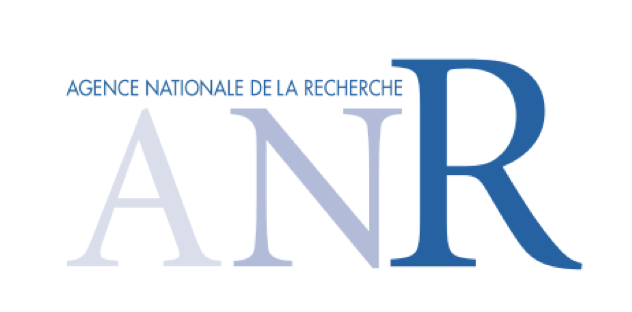ProAcTA
Programmatic Action in Times of Austerity – ProAcTA
Elites’ Competition and Health Sector Governance in France, Germany, the UK and the USA
(2008-2018)


French Principal Investigator :
William GENIEYS
University of Montpellier- UM (CEPEL – CNRS)
Team :
Saïd DARVICHE (UM / CEPEL)
Marc SMYRL (UM / CEPEL)
Farid BOUSSAMA (UM / CEPEL)
Patrick HASSENTEUFEL (Université de Versailles-St Quentin / Labo.Printemps)
Partners :
Lawrence BROWN (Colombia University)
Adam OLIVER (London School of Economics)
Anne-Laure BEAUSSIER (Université de Versailles-St Quentin / Labo.Printemps)
Budget : 333 000 €
German Principal Investigator :
Nils BANDELOW
TU Braunschweig
Team :
Colette VOGELER (TU Braunschweig)
Johanna HORNUNG (TU Braunschweig)
Partners :
Florian ECKERT (Bayer)
Robin RUESENBERG (Doctor’s Association dagnä)
Klaus SCHUBERT (University of Muenster)
Budget : 215 331 €
- What are the social and professional characteristics of individuals directly involved with reforming or defending health policy programs? Under what circumstances do they coalesce into relevant and influential collective actors?
- To what extent have arguments centered on the defense of public authority and/or the sustainability of health systems been mobilized by custodians in response to the challenge of austerity, and how successful have they been in the ongoing competition with austerians?
- What new or repurposed policy instruments have been mobilized by programmatic actors?
- Structure and history of health payment systems
- Extent, timing and political salience of austerity policies
French Principal Investigator :
William GENIEYS
University of Montpellier – UM (CEPEL – CNRS)
Team :
Saïd DARVICHE (UM / CEPEL)
Marc SMYRL (UM / CEPEL)
Farid BOUSSAMA (UM / CEPEL)
Patrick HASSENTEUFEL (Université de Versailles – St Quentin / Labo.Printemps)
Partners :
Lawrence BROWN (Colombia University)
Adam OLIVER (London School of Economics)
Anne-Laure BEAUSSIER (Université de Versailles-St Quentin / Labo.Printemps)
Budget : 333 000 €
German Principal Investigator :
Nils BANDELOW
TU Braunschweig
Team :
Colette VOGELER (TU Braunschweig)
Johanna HORNUNG (TU Braunschweig)
Partners :
Florian ECKERT (Bayer)
Robin RUESENBERG (Doctor’s Association dagnä)
Klaus SCHUBERT (University of Muenster)
Budget : 215 331 €
Summary :
ProAcTA refines and implements the Programmatic Actor Framework to test the following hypothesis in the US, UK (England), Germany, and France between 2008 and 2018:
In the health policy sector of western democracies, budgetary austerity has had the counter-intuitive result of providing specialized sectoral elites favorable to maintaining or expanding the public role (policy custodians) with the means and the incentive to reaffirm their own authority and autonomy within the state in competition with other elites whose program instrumentalizes the rhetoric of austerity in support of programmatic retrenchment (austerians).
Both custodians and austerians are examples of programmatic actors, whose characteristics were developed in our prior work and are defined in detail in this proposal. In this context, ProAcTA contributes to the testing of a broader hypothesis:
Competition for authority among programmatic actors provides both an endogenous dynamic of policy change and a necessary explanation for policy content.
Programmatic actors, custodians, and austerians are ideal types. The Programmatic Actor Framework contributes to specifying them. Through systematic biographical information, in-depth targeted interviews, and detailed policy content analysis we determine to what extent collective actors approaching these roles can be identified. We ask in particular:
- What are the social and professional characteristics of individuals directly involved with reforming or defending health policy programs? Under what circumstances do they coalesce into relevant and influential collective actors?
- To what extent have arguments centered on the defense of public authority and/or the sustainability of health systems been mobilized by custodians in response to the challenge of austerity, and how successful have they been in the ongoing competition with austerians?
- What new or repurposed policy instruments have been mobilized by programmatic actors?
An important area of investigation is the extent to which functional equivalents relating both to the composition of elites and to their strategies can be established across national systems that, while all face significant budgetary pressure, vary on significant dimensions. We distinguish two clusters of structural variables that are expected to channel and constrain the actions of elites:
- Structure and history of health payment systems
- Extent, timing and political salience of austerity policies
In specifying these, we seek to go beyond both the received typology of social welfare systems and the dichotomy between liberal and statist programs. This allows us to re-examine the assumptions held both by supporters of social policy retrenchment and its detractors by submitting to empirical testing the premise, too often taken as self-evident, that the various strategies linked to austerity (budget cuts, privatization, outsourcing…) have necessarily weakened the scope and authority of the state.
French Principal Investigator :
William GENIEYS
University of Montpellier – UM (CEPEL – CNRS)
Team :
Saïd DARVICHE (UM / CEPEL)
Marc SMYRL (UM / CEPEL)
Farid BOUSSAMA (UM / CEPEL)
Patrick HASSENTEUFEL (Université de Versailles-St Quentin / Labo.Printemps)
Partners :
Lawrence BROWN (Colombia University)
Adam OLIVER (London School of Economics)
Anne-Laure BEAUSSIER (Université de Versailles-St Quentin / Labo.Printemps)
Budget : 333 000 €
German Principal Investigator :
Nils BANDELOW
TU Braunschweig
Team :
Colette VOGELER (TU Braunschweig)
Johanna HORNUNG (TU Braunschweig)
Partners :
Florian ECKERT (Bayer)
Robin RUESENBERG (Doctor’s Association dagnä)
Klaus SCHUBERT (University of Muenster)
Budget : 215 331 €
- What are the social and professional characteristics of individuals directly involved with reforming or defending health policy programs? Under what circumstances do they coalesce into relevant and influential collective actors?
- To what extent have arguments centered on the defense of public authority and/or the sustainability of health systems been mobilized by custodians in response to the challenge of austerity, and how successful have they been in the ongoing competition with austerians?
- What new or repurposed policy instruments have been mobilized by programmatic actors?
- Structure and history of health payment systems
- Extent, timing and political salience of austerity policies